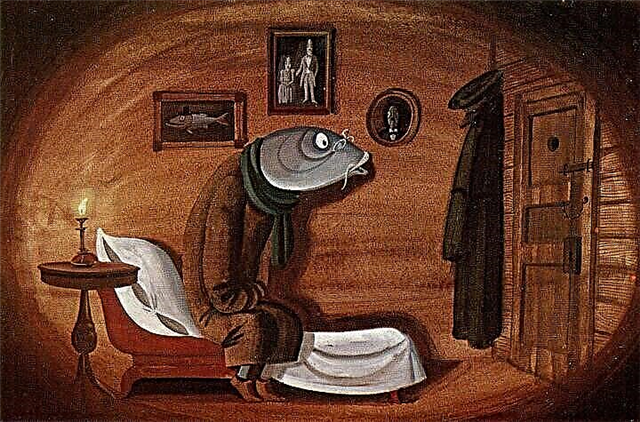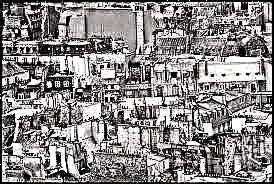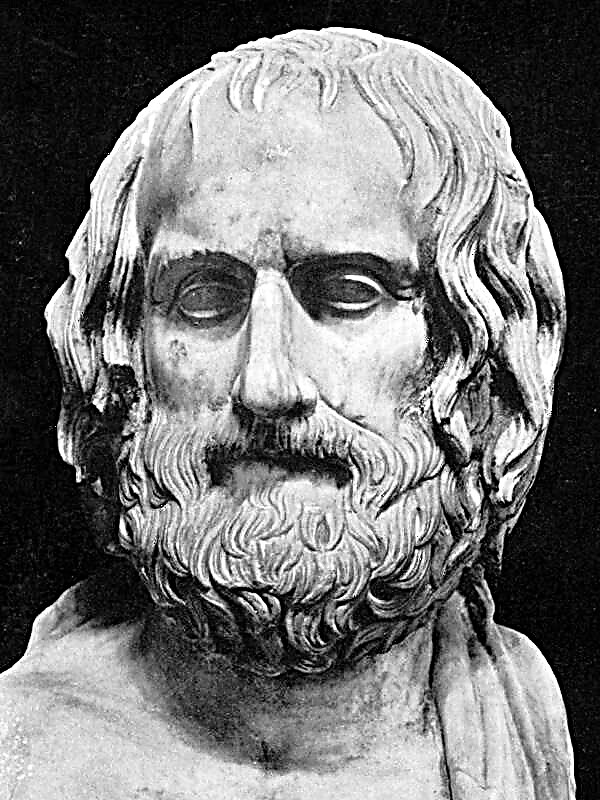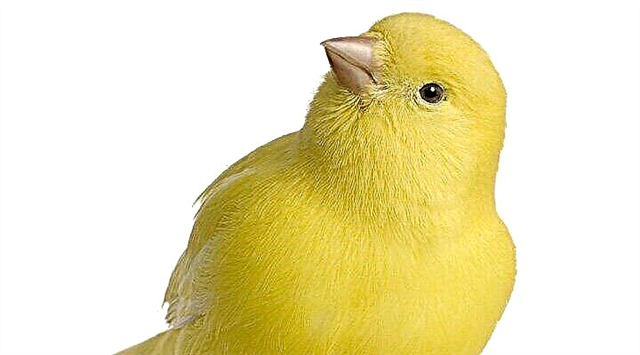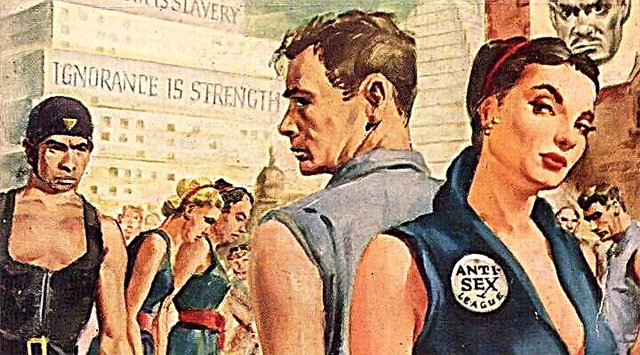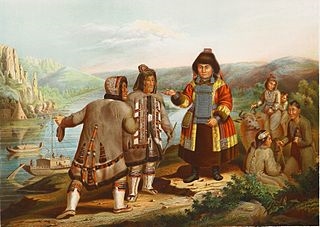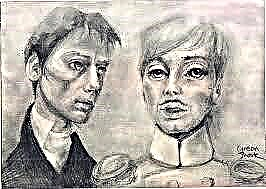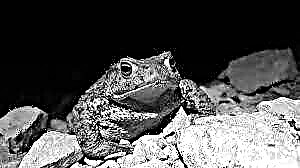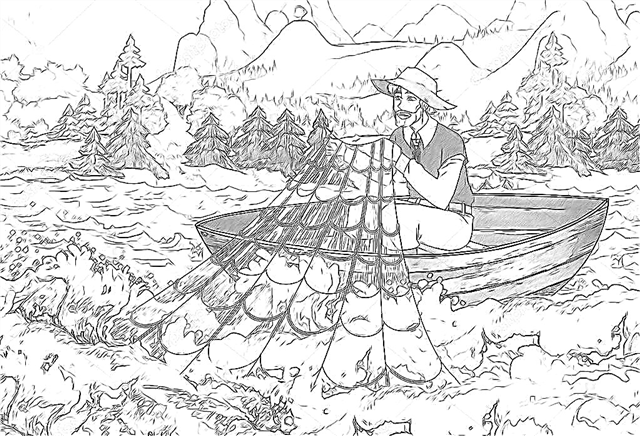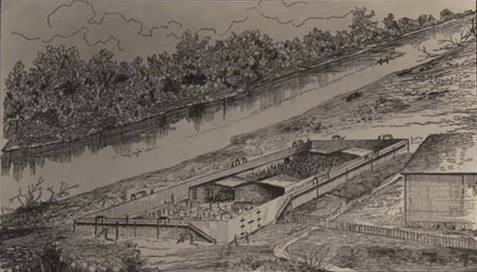The story of the terrifying life of the great Gargantua, father of Pantagruel, once composed by the master Alcofribas Nazier, the extractor of quintessence. A book full of pantagruelism
Books one and two
Turning to the glorious drunkards and venerable veneres, the author invites them to have fun and have fun reading his book, and asks not to forget to drink for him.
Gargantua's father's name was Granguzier, this giant was a big joker, he always drank to the bottom and liked to eat a salty snack. He married Gargamella, and she, carrying the baby in the womb for 11 months, ate too much at the feast of the cattle and gave birth to a warrior son, who came out through her left ear. This is not surprising if we recall that Bacchus came out of Jupiter's thigh, and Castor and Pollux - from an egg laid and hatched by Leda. The baby immediately shouted: “To care! To care! " - to which Granguzier exclaimed: “Well, you have a hefty one!” (“Ke-gran-tu-ah!”) - having in mind the throat, and everyone decided that since this was the first word of the father at the birth of his son, then he should be called Gargantua. The baby was given the opportunity to slap the wine and, according to the good Christian tradition, was christened.
The child was very smart and, when he was six years old, already knew that the best rub in the world was a fluffy gosling. The boy began to learn to read and write. His mentors were Tubal Holofernes, then Duraco Simpleton, and then Ponocrates. To continue his education, Gargantua went to Paris, where he liked the bells of the Cathedral of Our Lady; he carried them to him to hang on his neck a mare, and he was hardly able to persuade them to return them to their place. Ponokrat made sure that Gargantua did not waste time and was engaged with him even when Gargantua was washing, going to the latrine and eating. Once the Lernean bakers brought cakes to the city. The shepherds of Gargantua were asked to sell them part of the cakes, but the bakers did not want to, then the shepherds took the cakes from them by force. The bakers complained to their king Pikrohol, and the Pikroholovo army attacked the shepherds. Gargusier tried to settle the matter with the world, but to no avail, so he called Gargantua to help. On the way home, Gargantua and his friends destroyed an enemy castle on the banks of the Veda, and for the rest of the way Gargantua combed the nucleus of the Picrohol cannons defending the castle from his hair.
When Gargantua arrived at his father’s castle, a feast was held in his honor. The cooks Lick, Gnaw and Obsozi showed their art, and the treat was so delicious that Gargantua and the salad casually swallowed six pilgrims - fortunately, they stuck in his mouth and he picked them out with a toothpick. Granguzier talked about his war with Picrohol and greatly praised the brother of Jean the Dropper, the monk who won the defense of the monastery vineyard. Brother Jean turned out to be a cheerful drinking companion, and Gargantua immediately made friends with him. Valiant warriors outfitted on a campaign. In the forest, they came across Pikrohol's intelligence under the command of Count Ulepet. Brother Jean completely defeated her and freed the pilgrims whom the scouts managed to capture. Brother Jean captured the commander of Pikroholov's army of Fanfaron, but Granguzier released him, Returning to Picrohol, Fanfaron began to persuade the king to the world with Granguzier, who he now considered the most decent person in the world, and stabbed Bedokur with a sword, who called him a traitor. For this, Picrohol ordered his archers to tear Fanfaron apart. Then Gargantua laid siege to Picrohol in Laroche-Clermot and defeated his army. Pikrohol himself managed to escape, and along the way the old sorceress guessed that he would become king again when the cancer whistled. They say that now he lives in Lyon and asks everyone if he should hear that cancer is whistling somewhere - apparently, everyone hopes to regain his kingdom. Gargantua was merciful with the vanquished and generously bestowed companions. For Brother Jean, he built the Telem Abbey, unlike any other. Both men and women, preferably young and beautiful, were allowed there. Brother Jean lifted the vow of chastity, poverty and obedience, and proclaimed that everyone had the right to marry, be rich, and enjoy complete freedom. The charter of the Telemites consisted of a single rule: do what you want.
Pantagruel, king of the Dipsods, shown in his authentic form, with all his terrifying deeds and feats, the work of the late master Alcofribas, extractor of quintessence
At the age of five hundred twenty-four years, Gargantua got a son with his wife Badbek, daughter of the king of Utopia. The baby was so huge that his mother died in childbirth. He was born during the great drought, so he received the name Pantagruel (“Panta” in Greek means “everything”, and “Gruel” in the Hagarian language means “thirsty”). Gargantua was very sad about his wife’s death, but then he decided: “We need to cry less and drink more!” He took up the education of his son, who was so strong that even lying in the cradle tore the bear to pieces. When the boy grew up, his father sent him to study. On his way to Paris, Pantagruel met a limo who spoke such a mixture of learned Latin with French that it was impossible to understand a word. However, when an angry Pantagruel grabbed him by the throat, the limousine screamed in fear in the usual French, and then Pantagruel let him go. Arriving in Paris, Pantagruel decided to fill up his education and began to read books from the library of St. Victor, such as “Clicking parish priests on the nose”, “The Permanent Almanac for Gout and Veneres,” etc. Once Pantagruel met during a walk a tall man beaten to bruises. Pantagruel asked what adventures had brought the stranger to such a deplorable state, but he answered all the questions in different languages, and Pantagruel could not understand anything. Only when the stranger finally spoke in French did Pantagruel realize that his name was Panurg and that he had arrived from Turkey, where he was in captivity. Pantagruel invited Panurg to visit and offered his friendship.
At this time there was a lawsuit between Lizhizad and Peyvino, the matter was so dark that the court "was as fluent in it as in the Old High German language." It was decided to seek help from Pantagruel, who became famous for public debates. The first thing he ordered to destroy all the papers and made the complainants to state the essence of the matter orally. After listening to their meaningless speeches, he issued a fair sentence: the defendant must “deliver hay and tow to the subject of plugging the laryngeal holes, twisted by oysters, passed through a sieve on wheels”. Everyone was delighted with his wise decision, including both litigants, which is extremely rare. Panurg told Pantagruel how he was captured by the Turks. The Turks put him on a spit, stuffing with fat like a rabbit, and began to fry, but the toaster fell asleep, and Panurg, having contemplated, threw a firebrand at him. A fire started, which burned the whole city, and Panurg happily escaped and even escaped from the dogs, throwing them pieces of bacon, which was stuffed with it.
The great English scientist Thaumast arrived in Paris to see Pantagruel and test his scholarship. He proposed a debate in the way that Pico della Mirandola intended to do in Rome - silently, with signs. Pantagruel agreed and spent the whole night preparing for a dispute, reading Bedou, Proclus, Plotinus and other authors, but Panurg, seeing his excitement, suggested replacing him with a dispute. Introducing himself as Pantagruel’s apprentice, Panurg answered the Englishman so famously — he took out a bull’s rib, an orange, whistled, puffed, pounded with his teeth, made various forts with his hands — that he easily defeated Taumast, who said that Pantagruel’s fame was not enough, because it does not correspond and a thousandth of what is in reality. Having received the news that Gargantua was carried away to the country of fairies, and that having spent about this, the Dipsods crossed the border and devastated the utopia, Pantagruel immediately left Paris.
Together with friends, he destroyed six hundred and sixty enemy knights, flooded the enemy camp with his urine, and then defeated the giants led by the Ghoul. In this battle, the mentor of Pantagruel Epistemon was killed, but Panurg sewed his head into place and revived. Epistemon said that he was in hell, saw the devils, talked with Lucifer and had a good meal. He saw Semiramis there, who caught lice from strollers, Pope Sixtus, who treated for a bad disease, and many others: everyone who was important gentlemen in this world eke out a miserable and humiliating existence on that, and vice versa. Epistemon regretted that Panurg had brought him back to life so quickly, he wanted to stay in hell longer. Pantagruel entered the capital of the Amavrots, married their king Anarch to an old whore and made him a seller of green sauce. When Pantagruel with his army stepped into the land of Dipsod, the Dipsods rejoiced and hastened to surrender. Only the almirods became stubborn, and Pantagruel prepared for the offensive, but then it started to rain, his warriors shook from the cold, and Pantagruel covered his army with his tongue to protect him from the rain. The narrator of these true stories took refuge under a big burdock, and from there he went through his tongue and hit Pantagruel directly in his mouth, where he spent more than six months, and when he went out, he told Pantagruel that he had been eating and drinking all the time that he’s a fee from the most tidbits passing through his throat. "
Book Three
The third book of the heroic deeds and sayings of the good Pantagruel, an essay by the master Francois Rabelais, MD
Having conquered Dipsodia, Pantagruel resettled the Utopian colony there to revive, decorate and populate this land, as well as instill in Dipsods a sense of duty and a habit of obedience. He granted Panuru castle to Ragu, giving at least 6789106789 reais of annual income, and often more, but in two weeks Panurg spent all his income on three years in advance, and not only for trifles, but only for drinking and feasts. He promised Pantagruel to pay all debts to the Greek calends (that is, never), because life without debt is not life. Who, if not the lender, prays day and night for the health and longevity of the debtor. Panurg began to think about getting married and asked Pantagruel for advice. Pantagruel agreed with all his arguments: both those who were for marriage and those who were against, so the question remained open. They decided to tell fortunes by Virgil and, having opened the book at random, read what was written there, but interpreted the quote in completely different ways. The same thing happened when Panurg told his dream. According to Pantagruel, Panurg’s dream, like Virgil, promised him to be horned, beaten and robbed, while Panurg saw in him a prediction of a happy family life. Panurgh turned to the Panzui Sibyl, but they also understood the Sibyl prophecy differently. The elderly poet Kotanmordan, married to Syphilitia, wrote a poem full of contradictions: “Marry, do not try to marry. / <...> Take your time, but hurry. / Run headlong, slow down. “Marry or not,” etc. Neither Epistemon, nor the learned husband of Trippe, nor the brother of Jean the Dentist could resolve the doubts overwhelming Panurg, Pantagruel called for the advice of a theologian, doctor, judge, and philosopher. The theologian and healer advised Panurga to marry if he wanted to, and as for the horns, the theologian said that this was how God pleased, and the healer - that the horns are a natural attachment to marriage. The philosopher, when asked whether to marry Panurg or not, answered: “Both that and another”, and when Panurg asked him again: “Neither one”. He gave such evasive answers to all the questions that in the end Panurg exclaimed: “I am retreating ... I promise ... I give up. He is elusive. ” Pantagruel went after Judge Bridois, and his friend Karpalim followed the jester Tribulus. Bridois was in court at that time. He was charged with an unfair sentence with dice. Bridua, generously equipping her speech with Latin quotes, justified himself by saying that he was already old and had poor vision of the amount of points that had fallen. Pantagruel delivered a speech in his defense, and the court, presided by Sueslov, acquitted Bridois. Pantagruel and Panurg, as usual, understood the mysterious phrase of the jester differently, but Panurg noticed that the jester put an empty bottle on him and offered to make a trip to the oracle of the Divine Bottle. Pantagruel, Panurg and their friends equipped the flotilla, loaded the ships with a fair amount of the miraculous herb pantagruelion and prepared for sailing.
Book Four
Ships went to sea. On the fifth day, they met a ship sailing from the Lantern. On board were the French, and Panurg quarreled with a merchant nicknamed the Turkeys. In order to teach a lesson to the merchant’s bullying, Panurg bought three rams from a herd of his choice for three Turkish livres; choosing a leader, Panurg threw him overboard. All the rams began to jump into the sea after the leader, the merchant tried to stop them, and as a result one of the rams carried him along into the water and the merchant drowned. In the Prosecutor's Office - on the land of prosecutors and ovadniks - travelers were not offered to eat or drink. The inhabitants of this country earned money for food in an outlandish way: they insulted a nobleman until he got out of patience and beat them - then they demanded a lot of money from him under pain of imprisonment.
Brother Jean asked who wants to get twenty golden ecu for being beaten devilishly. There was no end to those who wished, and the one who was lucky enough to receive a thrashing from his brother Jean became the object of universal envy. After a severe storm and a visit to the Macreon island, Pantagruel's ships passed the Pity island, where Postnik reigned, and sailed to the island of Wild, inhabited by the archenemies of Postnik - fatty Sausages. The sausages that mistook Pantagruel and his friends for the Postnik warriors ambushed them. Pantagruel prepared for battle and assigned to command the battle of Kolbasorez and Sosiskromsa. Epistemon noted that the names of the commanders inspire courage and confidence in victory. Brother Jean built a huge "pig" and hid in it a whole army of brave cooks, like in a Trojan horse. The battle ended in the complete defeat of Sausages and the appearance of their deity in the sky - a huge gray boar, dropping twenty seven-odd barrels of mustard on the ground, which is a healing balm for Sausages.
Having visited the Ruach island, the inhabitants of which did not eat or drink anything except the wind, Pantagruel and his companions landed on the island of Papefig, enslaved by the papomanes because one of its inhabitants showed a fig to the portrait of the pope. In the chapel of this island, a man lay in a font, and three priests stood around and conjured demons. They said that this man is a plowman. Once he plowed a field and sowed it with a spout, but a little devil came to the field and demanded his share. The plowman agreed to divide the crop with him in half: the imp - that which is underground, and the peasant - that which is above. When it was time to harvest, the plowman got ears of corn, and the imp - straw. The next year, the imp chose what was on top, but the plowman planted turnips, and the imp remained again with a nose. Then the imp decided to scratch with the plowman with the condition that the vanquished loses its part of the field. But when the little devil came to the plowman, his wife with sobs told him how the plowman scratched her little finger for training and tore it all up. As proof, she lifted her skirt and showed a wound between her legs, so that the little devil considered it best to get out.Having left the Papéfig Island, travelers arrived on the Papoman Island, the inhabitants of which, having learned that they had seen the Pope alive, received them as dear guests and long praised them for the Sacred Decrees published by the Pope. Having sailed from the island of the papomanes, Pantagruel and his companions heard voices, neighing of horses and other sounds, but no matter how much they looked around, they did not see anyone. The pilot explained to them that a battle took place last winter on the border of the Arctic Sea, where they sailed. Words and screams, the ringing of weapons and the neighing of horses froze in the air, and now that the winter has passed, they have thawed and become heard. Pantagruel threw handfuls of colorful words onto the deck, among which were even curses. Soon the Pantagruel flotilla arrived on the island, ruled by the almighty Messer Gaster. The inhabitants of the island, sacrificed all their food to their god, from bread to artichokes. Pantagruel found out that none other than Gaster invented all sciences and arts: agriculture - in order to grow grain, military art and weapons - to protect grain, medicine, astrology and mathematics - to store grain. When the travelers sailed past the island of thieves and robbers, Panurg hid in the hold, where he took the furry cat Saloed for hell and dabbled in fear. Then he claimed that he was not at all afraid and that he was such a fine fellow against the sheep that the world had not seen.
Book Five
Travelers sailed to Zvonky Island, where they were allowed to go only after a four-day fast, which turned out to be terrible, because on the first day they fasted through the stump deck, on the second day through the sleeves, on the third - at all costs, and on the fourth - how much in vain. Only birds lived on the island: clergy, priests, monks, bishops, cardinians and one finger. They sang when they heard the bell ringing. Having visited the island of iron products and the island of rogues, Pantagruel and his companions arrived on the island of Zastenok, inhabited by ugly monsters - Fluffy Cats, who lived in bribes, consuming them in exuberant quantities: whole ships loaded with bribes came to the harbor to them. Having escaped from the clutches of evil cats, travelers visited several more islands and arrived at the Mateotechnia harbor, where they were escorted to Queen Quintessence's palace, which ate nothing but certain categories, abstractions, secondary intentions, antithesis, etc. Its minions milked the goat and they poured milk into a sieve, caught nets with the wind, stretched legs on clothes and did other useful things. At the end of the journey, Pantagruel and his friends arrived at the Lantern and landed on the island where the oracle of the Bottle was located. The lantern took them to the temple, where they were taken to the Princess Bakbuk, the court lady of the Bottle and the high priestess, with all her rites. The entrance to the Temple of the Bottle reminded the author of the story of a painted cellar in his hometown of Chinon, where Pantagruel also visited. In the temple, they saw a strange fountain with columns and statues. Moisture flowing from it seemed to travelers as cold spring water, but after a hearty snack brought in order to clean the guests' palate, the drink seemed to each of them exactly the wine that he loved most. After that, the Book asked who wants to hear the word of the Divine Bottle. Upon learning that it was Panurg, she took him to a round chapel, where in the alabaster fountain lay a bottle half immersed in water. When Panurg fell to his knees and sang a ritual song of winegrowers, Bakbuk threw something into the fountain, which caused a noise in the Bottle and the word “Trink” came out. Bakbook took out a silver-bound book, which turned out to be a bottle of Falernian wine, and ordered Panurg to drain it with one spirit, for the word “trink” meant “drink”. In parting, Buckback handed Pantagruel a letter to Gargantua, and the travelers set off on the return trip.

